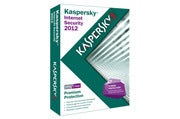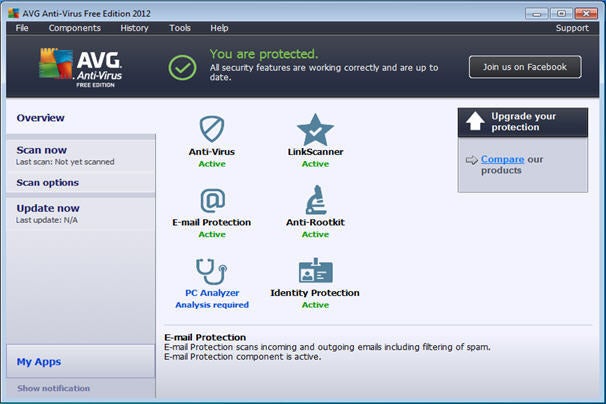Buy Kaspersky Internet Security 2012 Pcworld
The latest enterprise technology news, reviews, downloads and blogs for IT Professionals. Business critical resources on security, data centres, virtualisation.

In May 2012, Kaspersky Lab identified the malware Flame, which a researcher described as potentially the most sophisticated cyber weapon yet unleashed.
- PCWorld helps you navigate the PC ecosystem to find the products you want and the advice you need to get the job done.
- Bitdefender Total Security 2016 is the ultimate anti-malware protection. It builds on technology awarded PRODUCT OF THE YEAR and uses machine-learning to fight off.
- Jul 25, 2012 Windows 8 will come with bundled antivirus software, but will you need to supplement it with other programs. We look at some of your options.
- Download the best antivirus for Windows from Bitdefender and get protection against viruses anti spyware without slowing down your PC.
- Latest trending topics being covered on ZDNet including Reviews, Tech Industry, Security, Hardware, Apple, and Windows.
Microsoft will include antivirus in Windows 8 for the first time in the history of Windows. But will this software--the new version of Windows Defender--provide adequate protection against viruses, spyware, and other malware. Let s take a closer look at what Windows Defender provides, and whether its features are enough to keep you safe.
Bear in mind that even though Microsoft will include Windows Defender in Windows 8, PC manufacturers may disable the program on new PCs that carry preinstalled antivirus software from a third-party such as Norton or McAfee. The preinstalled third-party antivirus options are usually limited-time trials, so your initial decision may be whether to keep any preinstalled antivirus; if you decide against keeping it, you ll need to decide whether to enable Windows Defender and use it or to switch to another third-party antivirus program.
The most important thing to consider when choosing antivirus software is its protection strength--how well it detects, disables, and removes viruses, spyware, and other malware. In this article I ll focus on comparing the protection strength of Windows Defender to that of other antivirus programs.
Windows Defender in Windows 8 looks a lot like Microsoft Security Essentials.
Though we haven t fully tested Windows Defender in Windows 8 yet, we have tested Microsoft Security Essentials, which uses the same antimalware engine as Windows Defender.
Windows Defender and Microsoft Security Essentials also have very similar interfaces. Consequently, using the results from the existing Security Essentials review for a casual comparison seems reasonable. Security companies regularly update their products, and the results you obtain with the most recent iteration of each package could very well differ from those discussed here, but the earlier data does give us a rough idea of how Security Essentials and Windows Defender match up to their competition.
In a roundup review that we posted three months ago, based on evaluations that we conducted in conjunction with AV-Test, a well-respected antivirus-software testing lab, we appraised the performance of seven free antivirus programs. In this group, Security Essentials placed fifth. Our reviewers found it easy to use and deemed it the best of the seven at completely removing malware that it uncovered; but they also found its malware detection rate rather lackluster: It spotted 97 percent of known malware samples, whereas programs turned in detection rates as high as 99.9 percent.
To compare the protection strength of Security Essentials to that other free and paid antiviruses, you can refer to AV-Test s website for its latest testing results. Those results, at this writing, show that Security Essentials provides great malware repair and removal: placing third, just behind Bitdefender and Kaspersky. But the program s results for malware detection are much worse: It placed 21st in a field of 22.
If you d like to save some money, but prefer to use some other program, you have quite a few options. Again, I ll refer to our roundup review from last April, which evaluated seven free antivirus suites. Here are the top four you might consider using:
AVG Anti-Virus Free Edition was the highest-ranked of the seven free antivirus programs we assessed earlier this year.
AVG Anti-Virus Free Edition: Though it had the lowest detection rate of the top four free antivirus programs with a 98.7 percent detection rate against known malware Avast, Panda, and Avira finished with rates of 99.1 percent, 99.9 percent, and 99.7 percent, respectively, it handily outperformed Security Essentials which finished with a detection rate of 97 percent. And though it wasn t as good at completely removing malware as Security Essentials 66.7 percent versus 80 percent, it was the only antivirus to disable 100 percent of detected malware; Security Essentials finished at 93 percent on this measure. AVG Anti-Virus Free Edition also tied Panda Cloud Antivirus for the top rate of blocking brand-new threats, at 85.7 percent, whereas Security Essentials was at 71.4 percent.
Avast Free Antivirus: Avast s freebie provided strong detection of known malware samples, at 99.1 percent. Its rate of completely removing malware 67 percent fell short of Security Essentials rate 80 percent and the two programs delivered matching 93 percent rates for disabling active malware. Avast Free Antivirus did provide better blocking of real-world malware, achieving a 78.6 percent rate, compared to Security Essentials 71.4 percent.
Panda Cloud Antivirus: This tool provided the second highest protection against known malware samples overall at 99.9 percent, compared to 97 percent by Security Essentials. Though Panda s malware repair percentage was among the lowest in the group of seven, it tied with AVG for the best performance at fully blocking brand-new threats, turning in a rate of 85.7 percent, versus Security Essentials mark of 71.4 percent.
Avira Free Antivirus: Avira provided the third-highest detection rate out of seven free antiviruses tested for spotting known malware samples: 99.7 percent, compared to Security Essentials rate of 97 percent. Though it scored lower than Security Essentials on AV-Test s remaining detection and repair tests, Avira did provide much faster scanning.
Though free antivirus programs can provide adequate protection for most users, the best protection must be bought. To compare these, I ll refer to a roundup review of paid security suites that we posted in January of this year. Here are the top four programs you might consider purchasing, with their prices for one year of protection on three PCs lited parenthetically:
G Data InternetSecurity 2012 earned the top ranking among paid antivirus programs in our January roundup.
G Data InternetSecurity 45 : Among 14 paid packages tested, G Data Internet Security provided the best protection against known malware with a 99.99 percent detection rate. At the same time, it had minimal impact on PC performance, and an acceptable complete malware removal score of 60 percent.
Norton Internet Security 50 : This program delivered solid detection of known malware, at 99.94 percent, but it suffered from a higher-than-average false-positive rate and a relatively low malware removal mark of 50 percent.
Bitdefender Internet Security 80 : Bitdefender turned in the second-highest malware detection rate among paid programs, at 99.96 percent, and it also distinguished itself with a very good removal rate 90 percent, but its scan speeds tended to be slow, and the software had a relatively large impact on PC performance.
Kaspersky Internet Security 65 : Kaspersky s paid antivirus software combined good malware protection at 99.34 percent with an acceptable malware removal rate of 60 percent.
When you buy an Internet Security suite, in addition to getting better protection, you usually get more features and services than you would with a free antivirus program. For example, most Internet Security suites include a firewall to help block intrusions and data theft these firewalls tend to be better than the free firewall built into Windows, as well as a spam filter to help you control your junk email. Many security software vendors offer tech support for removing malware if you do become infected, and they may provide additional security features such as sandboxing, and even extras like online storage or PC tune-up utilities.
If your Windows 8 PC comes with a third-party antivirus preinstalled on it, you should first check the program s ranking; if it doesn t rank in the top four, consider opting out and using something else. As we ve seen, the free antivirus built into Windows 8 should be easy to use and should provide excellent malware removal, but it will likely be relatively weak at detecting malware in the first place.
Though Windows Defender will still certainly protect you from most malware and may be suitable for some users, you may prefer to install on of the better-performing free antivirus programs offered by AVG, Avast, Panda, and Avira. Or for superior protection and more features, consider buying antivirus protection from one of the top vendors: G Data, Symantec Norton, Bitdefender, or Kaspersky.
Norton AntiVirus, developed and distributed by Symantec Corporation, was providing malware prevention and removal during a subscription period.
Kaspersky Internet Security 2012 80 for one year and three PCs as of January 25, 2012 ranked fourth in our 2012 roundup of security suites. Although it finished outside the top three, it s a solid all-around suite that will do an effective job at keeping you safe.
In our real-world malware blocking tests, Kaspersky s suite fully blocked all samples that it encountered. This result means that it should do very well in protecting you from brand-new, as-yet unknown malware. In addition, it detected 99.34 percent of known malware samples in more-traditional signature-based detection tests. On its own, that s a great showing--but believe it or not, that s merely an average result this year due to the overall strength of 2012 s suites.
False positives are largely a nonissue: Kaspersky s product misidentified only one safe file out of a pool of 250,000 files as dangerous. And the suite was effective at disinfection, detecting and disabling all sample infections on our test PC. It removed all traces of malware 60 percent of the time, performing slightly above average in that regard.
In general the Kaspersky suite has a low impact on PC performance, though it did slow our test machine a fair amount when we copied files over a network: It took 3 minutes, 34 seconds to complete this test, landing well behind the average of 3 minutes, 2 seconds.
It was faster than average, however, at scanning. It completed an on-demand scan which runs when you manually click the Scan Now button of 4.5GB of data in 1 minute, 11 seconds--the third-best showing, and a considerably better result than the average of 1 minute, 59 seconds for the suites we looked at. It wrapped up on-access scanning which kicks off when you open or save a file of 4.5GB of data in 4 minutes, 40 seconds, about 8 seconds faster than average.
On the rest of our speed tests, Kaspersky finished either around average or above average as compared with its competition.
Kaspersky gave its software a face-lift in 2012, abandoning the curiously divided interface in last year s suite. While the new interface is fine, it isn t outstanding. Kaspersky uses a fairly standard multistep wizard installer that s fairly painless, but some of the other suites we looked at this year have one-click installation processes. Once the package was installed, we navigated its screens fairly easily. The main screen gives a clear indicator of your protection status, with buttons along the bottom to adjust settings for the suite s major components. Some parts still could use a redesign, though. For example, a few panels open in the main window, while others spawn new windows, which can be a little disorienting. And from a purely aesthetic perspective, I wasn t a huge fan of the teal-and-white theme--but that s picking nits.
Kaspersky Internet Security 2012 falls a little short of the absolute top competitors, mainly because of the all-around strength of this year s suites. Nevertheless, Kaspersky s latest offering is worth a look.
